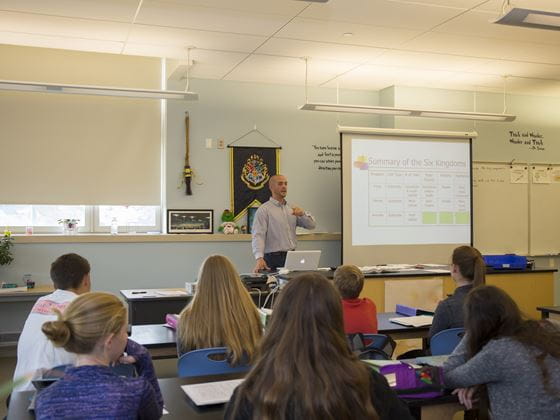-
Program Overview
If you want a high impact career teaching history, helping students understand how the past informs the present, you can add the secondary education concentration.
History majors may pursue Massachusetts state licensure by completing the secondary education concentration. In doing so, you will be eligible to receive a license to teach History, grades 5-12, in Massachusetts.
The experience you will gain at Endicott is comprehensive. You will complete freshman and sophomore internships in a range of school settings, a sophomore and junior field experience connected to your secondary education courses, a junior year pre-practicum, and senior year full practicum experience. Upon graduation, you will have completed all of the requirements necessary to apply for an initial license in the state of Massachusetts, and you will be eligible to pursue licensure in many other states. Students receive free preparation for the required Massachusetts Tests for Educator Licensure (MTEL) as part of the program.

-
Curriculum
-
Internships and Careers
Endicott College
History: Secondary Education Teacher Licensure Concentration
.jpg?h=567&iar=0&w=756&hash=A933676A2CABA6370F2243E636D8A4E3)




